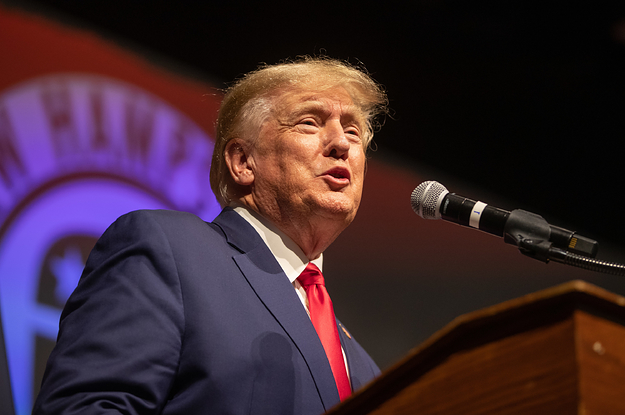A special grand jury in Georgia’s inquiry into Donald Trump’s attempts to overturn the 2020 presidential election has revealed that “one or more” witnesses may have lied under oath. In a brief report released by the grand jury, it was recommended that witnesses who may have committed perjury be charged. The report, excerpted from a longer document, includes the introduction, conclusion, and a section addressing the possibility of perjury. The grand jury was investigating efforts by Trump and his allies to overturn the election results, which Trump claimed were stolen through voter fraud. The report reaffirmed that no widespread fraud had taken place.
The special grand jury heard testimony from 75 witnesses over a period of seven months, including high-profile figures such as Mark Meadows, Rudy Giuliani, and David Shafer. However, the report does not name the witnesses who may have committed perjury or speculate on whether other laws were broken. While the grand jury can recommend charges, the decision to indict ultimately rests with prosecutors. The investigation centers around a phone call in January 2021 between Trump and Georgia Secretary of State Brad Raffensperger, in which Trump urged Raffensperger to “find” enough votes to secure his victory in the state. The call was a pivotal moment in the attempts to overturn the election results.
Investigators also examined potential criminal activity and conspiracy to overturn the election, including false claims of election fraud, unauthorized access to voting machines, and threats against election workers. Fulton County District Attorney Fani Willis has indicated that charges may be brought following the grand jury’s report. During a hearing in Atlanta, she informed the judge that a decision on charges was imminent. The specific recommendations on criminal charges made by the grand jury remain sealed as of February 16.
This report is a significant development in the ongoing investigation into Trump’s actions surrounding the 2020 election. It highlights the possibility that witnesses may have provided false testimony under oath, which is a serious offense. The grand jury’s recommendation to charge these witnesses indicates the gravity of the situation and the potential consequences they may face if found guilty of perjury.
Furthermore, the report reaffirms what has been widely acknowledged: that no widespread voter fraud occurred in the Georgia election. The grand jury heard extensive testimony from various individuals involved in the election process, including poll workers, investigators, and state employees, all of whom confirmed that there was no evidence of fraud that could have resulted in overturning the election.
The investigation also delved into other potential criminal activities aimed at overturning the election, such as false claims of fraud, unauthorized access to voting machines, and threats against election workers. These allegations are serious and reflect the extent to which some individuals were willing to go in their attempts to undermine the democratic process.
The decision by Fulton County District Attorney Fani Willis to potentially bring charges based on the grand jury’s report underscores the significance of the findings. It indicates that there may be legal consequences for those involved in attempting to overturn the election results. However, the sealed nature of the specific recommendations on criminal charges leaves room for speculation and anticipation regarding the potential outcomes of the investigation.
Overall, this report sheds light on the progress of the inquiry into Trump’s efforts to overturn the 2020 election in Georgia. The revelation that witnesses may have committed perjury underscores the seriousness of the investigation, while the reaffirmation that no widespread voter fraud occurred strengthens the legitimacy of the election results. The potential charges that may be brought by the district attorney highlight the potential legal consequences for those involved in attempting to undermine the democratic process. As the investigation unfolds, further developments are expected to provide greater clarity on the extent of wrongdoing and potential accountability.









